
Our guide looks at what masonry anchors are, what they are used for, and the different types available.
What is masonry?
Before we explain what masonry anchors are, we must first define masonry itself. In its simplest form, masonry can be described as anything that a mason puts down. In other words, if it is laid by a stonemason or a bricklayer, then it is masonry. This can include building materials such as stone and brick, as well as block walls.
Blockwork walls are made from blocks that are commonly known as breeze block, Thermalite block, concrete blocks, or cinder block. Blocks are typically much quicker to lay than brick, so they are often used for the interior walls of modern houses. The walls are then covered with plaster or plasterboard to provide a smooth finish.
What are masonry anchors?
So, considering that, anchors for masonry are simply fixings used to fasten or attach an item to masonry. Strong and durable, they are designed for reliability and to provide a secure hold.
Traditionally, screws are used to fix items to masonry, but this method has its limitations with certain materials. It is not possible to screw directly into brick, stone, or block walls hence the need for specialist masonry anchors.
Plastic wall plugs and masonry anchors can help to achieve a secure fitting when fixing items to walls. They work by expanding against the hole you have drilled in the masonry, as the screw is screwed into the wall. This creates a highly secure and tight-fitting hold on the screw - providing that the wall is made from solid masonry or concrete.
What are masonry anchors used for?
Masonry fixings are anchors used to fasten or attach an item to masonry. They can be used with various kinds of masonry including brick and blocks, as well as concrete.
Using masonry plugs on different building materials is explored in further detail below:
This story is from the March/April 2023 edition of The Home Handyman.
Start your 7-day Magzter GOLD free trial to access thousands of curated premium stories, and 9,000+ magazines and newspapers.
Already a subscriber ? Sign In
This story is from the March/April 2023 edition of The Home Handyman.
Start your 7-day Magzter GOLD free trial to access thousands of curated premium stories, and 9,000+ magazines and newspapers.
Already a subscriber? Sign In

UPGRADING home security
When it comes to home security, doors, locks, and handles are your first line of defence.
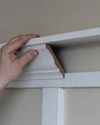
CEILING ELEGANCE
All you need to know about cornices and crown moulding.

8 DIY MYTHS YOU SHOULD STOP BELIEVING
DIY can seem intimidating, especially if you’re new to it or have heard some of the common myths that discourage people from trying their hand at it. But don’t let these misconceptions hold you back! Here are 8 DIY myths you should stop believing and the truth behind them.
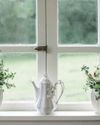
WINDOW WONDERLAND
Windows are more than just functional parts of a home they're key design elements that influence your comfort, security, and energy efficiency.

CONCRETE CREATIONS: A guide to working with cement
With the right tools, techniques, and a little know-how, working with cement can be straightforward and incredibly rewarding.

HOW TO CARVE A WOODEN BIRD
Do you love nature and its beautiful creatures? Are you passionate about wood carving and want to combine the two? If so, you're in the right place! In this article, we'll show you how to carve a wooden bird that captures the beauty of nature and provides a satisfying creative outlet.
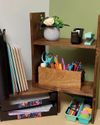
SHELF-INDULGENCE
Free-standing shelves are a versatile solution for tidying up almost any space. Whether it's your desk, kitchen, workshop, craft room, children's room, or even a spot for plants, these shelves can help you organise and declutter.
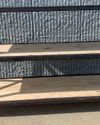
RACK IT UP
If you've ever wanted to create a custom shelf that combines industrial style with functionality, this project is for you! Using metal tubing and wood, you'll build a robust shelving unit perfect for organising your space.
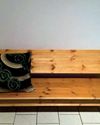
BUILDING A SIMPLE KITCHEN BENCH
I needed a kitchen bench, so I built one... When you're in need of furniture but don't want to spend a fortune, building it yourself can be both a cost-effective and satisfying solution.
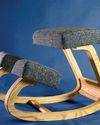
SIT HAPPENS
An ergonomic kneeling chair is a practical and stylish solution for anyone who spends long hours working at a desk.